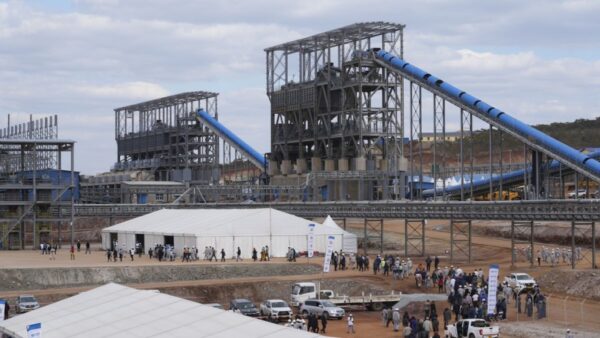Prospect Lithium Zimbabwe (PLZ) owned Arcadia lithium mine in Goromonzi produced around 280 000 tonnes of concentrate in 2023 and plans are underway to double production in 2024. The company has plans to double production in 2024 but is facing challenges due to softening commodity prices. Despite this, PLZ remains optimistic about its future prospects.
Rudairo Mapuranga
Speaking to Mining Zimbabwe PLZ General Manager Henry Zhu said his PLZ was still working on a 2024 plan but it was being affected by softening commodity prices.
“We produced around 280000 tons of concentrate. We are working on the 2024 plan. But it’s a big challenge because of the low price,” Zhu said.
Following the successful conclusion of a US$377,8 million upfront cash consideration last year under a share sale agreement from Prospect Resources by China’s Huayou International Mining for an 87 per cent stake in Prospect Lithium Zimbabwe, a US$300 million processing plant was built at the mine before the asset started exporting lithium concentrate towards the end of April of last year.
PLZ processing plant can process 4,5 million tonnes of lithium ore per year, producing 450,000 tonnes of concentrate. Currently, PLZ employs over 2 500 local Zimbabweans including contractors and sub-contractors.
The company has used an excess of US$700 million to buy and develop the mine and is expecting to start profiting from its investment in the next 3 years.
On the Corporate Social Responsibility (CSR) front, PLZ is embarking on community health intervention programmes to enhance access to health facilities in Goromonzi and the country at large.
PLZ is also undertaking sustainable environmental management initiatives to minimise lithium mining and processing impacts on the environment.
Mr Henry said his organisation decided to invest in Zimbabwe with the major contributing factor being the enabling investor-friendly policies established by the government.
The policies fast-tracked the acquisition, establishment, and development of the project on record.
Manufacturing of batteries in Zimbabwe
PLZ intends to manufacture Lithium batteries in Zimbabwe as part of its efforts to contribute towards the government’s vision to see the country becoming an upper middle-income economy by 2030.
PLZ director in the general manager’s office Mr Yu Long said they will look into manufacturing lithium batteries in Zimbabwe after the company finishes the process to produce battery-grade lithium.
“As PLZ we will follow the procedure step by step. Firstly, we need to finish the concentrate then we go to another step of making lithium sulphate and we continue up to furthering our activities to the manufacturing of batteries,” Long said.
Speaking at the official commissioning of PLZ’s Arcadia lithium mine processing plant in Goromonzi last year PLZ Dr George Feng said his company was going to fulfil the government’s condition for it to produce battery-grade lithium with works to start construction of the plant in its initial stages.
PLZ head of Corporate Social Responsibility Paul Chimbodza told Mining Zimbabwe that the company was considering creating a lithium-grade manufacturing plant to attract battery manufacturers to come and set up their factories at the source.
“…you may have heard Dr George Feng already alluded that feasibility work has already started to interrogate the process of doing value addition, either in the way of lithium carbonates or lithium sulphate. The aspiration is that with these battery-grade lithium products being readily available in Zimbabwe, we think that it will be easier to attract battery manufacturers to come and set up at the source,” Chimbodza said.
The government of Zimbabwe wants lithium miners operating in the country to work towards producing battery-grade lithium locally and could impose a tax on exports of lithium concentrate in future.
Last year, Zimbabwe banned the export of unprocessed lithium ore to stop rampant extraction and smuggling of the mineral by artisanal miners, ordering that only lithium concentrates could be exported.
It now wants miners to go beyond the production of concentrates, which are shipped for further processing outside the country, mostly to China.
“Obviously, what the government wants is to move up the value chain, but it won’t happen overnight,” the former Minister of Mines and Mining Development Hon Winston Chitando said in an address at an Event.




